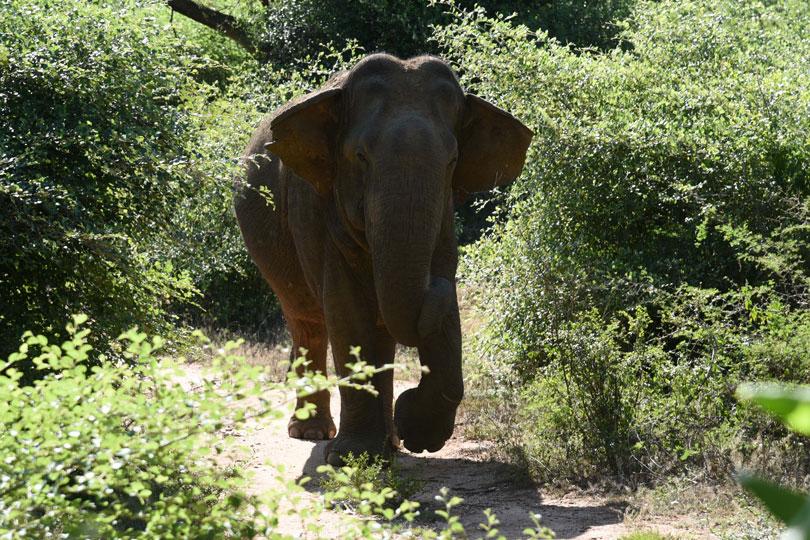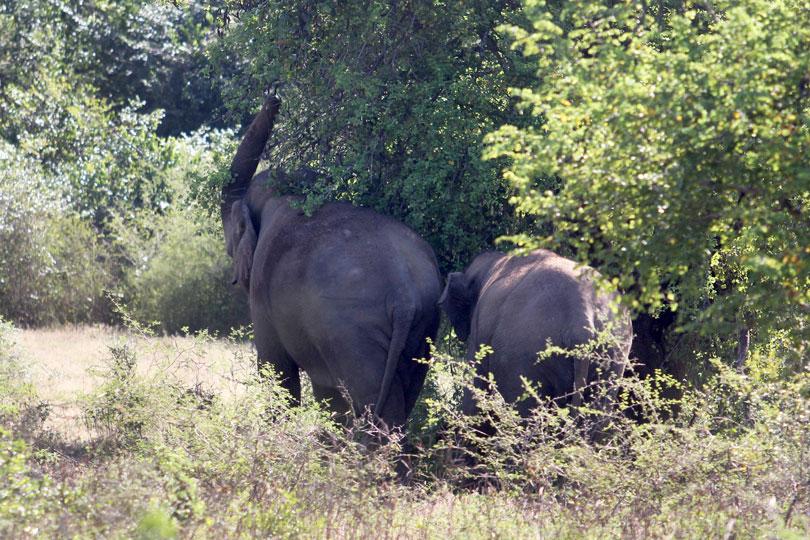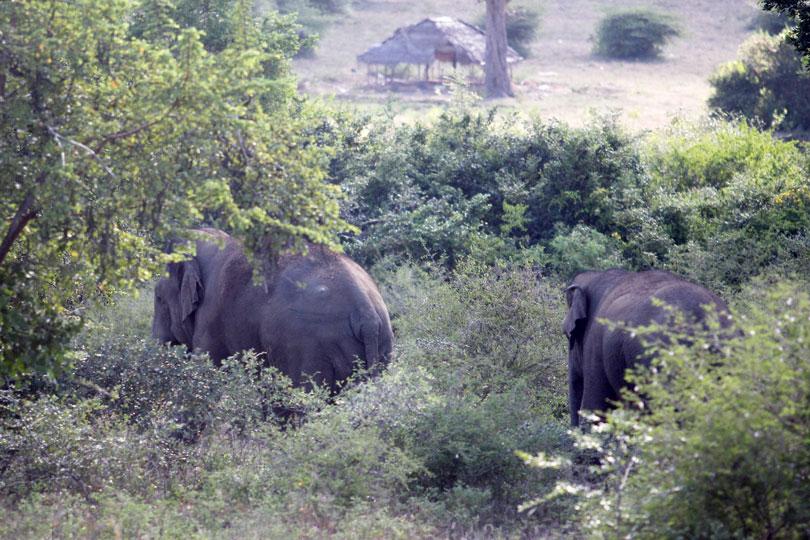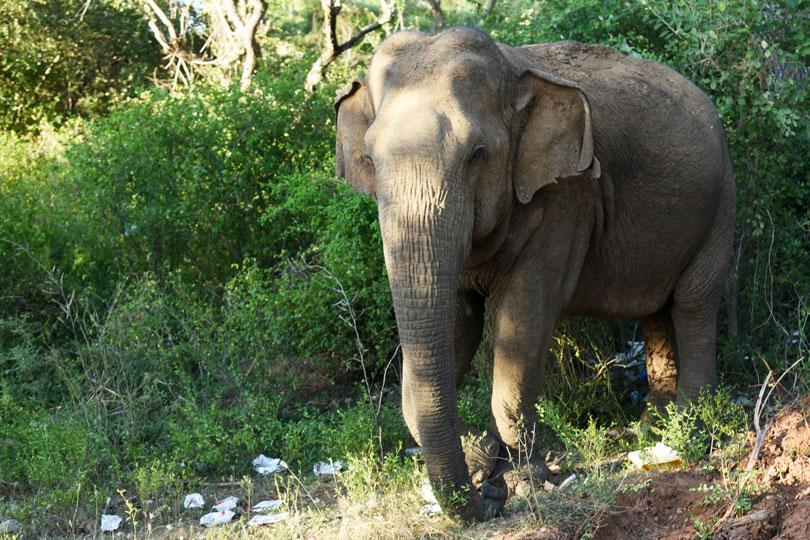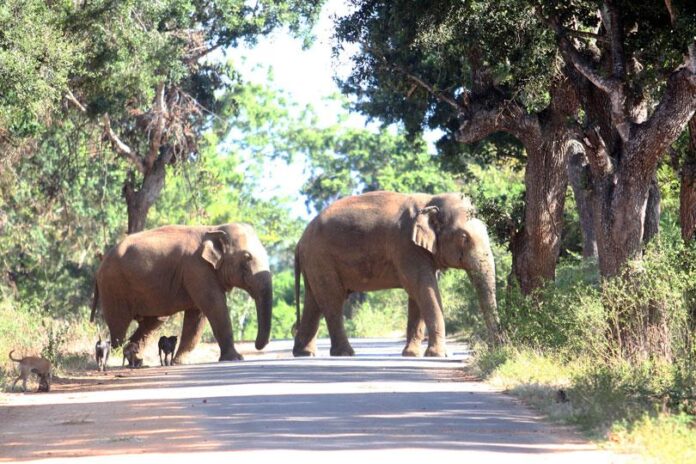In the heart of Tissamaharama, amidst the arid landscape of the current dry season, a poignant scene unfolds. Majestic elephants, icons of wilderness, are on a quest for survival. They traverse roads, fields, and even human settlements in search of the most basic necessities: food and water. Yet, what they find is not always the lush foliage of their natural habitat but rather the remnants of human existence—garbage.
The elephants of Tissamaharama, like many of their kind across the globe, are facing the relentless pressures of habitat loss and climate change. As their traditional habitats shrink and water sources dwindle, they are forced to venture into areas inhabited by humans in search of sustenance.
The sight of these gentle giants rummaging through piles of garbage is both heart-wrenching and symbolic of the complex relationship between humans and wildlife. The garbage, often carelessly discarded by humans, becomes an unintended buffet for these creatures, offering scraps of food amidst a sea of waste.
But this unnatural diet comes with grave consequences. Consuming garbage poses serious health risks to the elephants, leading to digestive problems, infections, and even death. Plastic, in particular, presents a deadly threat, as it cannot be digested and accumulates in their stomachs, causing agonizing suffering.
The situation calls for urgent action on multiple fronts. Efforts to mitigate human-elephant conflict are paramount, requiring collaboration between government agencies, conservation organizations, and local communities. Measures such as the installation of elephant-proof fences, the creation of wildlife corridors, and the implementation of better waste management practices can help minimize encounters between humans and elephants, reducing the likelihood of conflicts and casualties.
Moreover, addressing the root causes of habitat destruction and degradation is essential for the long-term survival of these magnificent animals. Conservation initiatives aimed at preserving and restoring elephant habitats, coupled with sustainable development practices that prioritize coexistence with wildlife, offer hope for a more harmonious future.
But perhaps the most profound change must occur within the hearts and minds of individuals. It is a call to reevaluate our relationship with nature and recognize the interconnectedness of all living beings. Each piece of garbage we discard irresponsibly carries consequences that ripple through ecosystems, affecting not only elephants but countless other species.
As we witness elephants navigating a landscape altered by human activity, let us reflect on our role as stewards of the Earth. Let us strive to create a world where elephants roam freely in their natural habitats, where they find sustenance in the bounties of the wilderness rather than the detritus of human civilization. For in safeguarding the well-being of elephants, we safeguard the integrity of our planet and the richness of its biodiversity.
